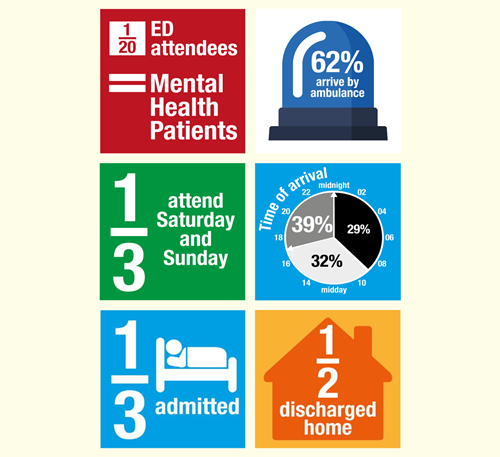Patients with mental health conditions use hospital Emergency Departments (EDs) more frequently than others. However, many have a poor experience of care in this setting and there are variations across the country in the help, care and support available to those in crisis.
In the first national study of emergency department mental health attendances, we sought to describe variations in both service use and care quality for adult patients who attend NHS EDs in England because of a mental health problem.
We used NHS data (Hospital Episode Statistics) to describe the population of patients who attend EDs in England because of a mental health problem, including their sociodemographic characteristics. We used NHS data (Hospital Episode Statistics) to compare the care they receive from different NHS providers, as well as contrasting it with that provided to adult patients who attend the ED for other, non-mental health related reasons.
We analysed over 6 million adult visits at 97 English NHS Trusts between April 2013 and March 2014.

 START DATE AND DURATION: 2015
START DATE AND DURATION: 2015


 Publications
Publications